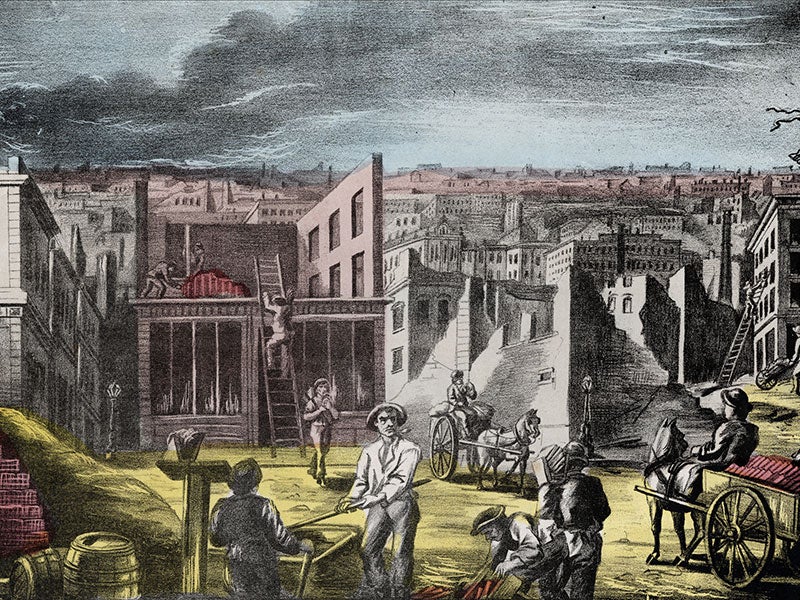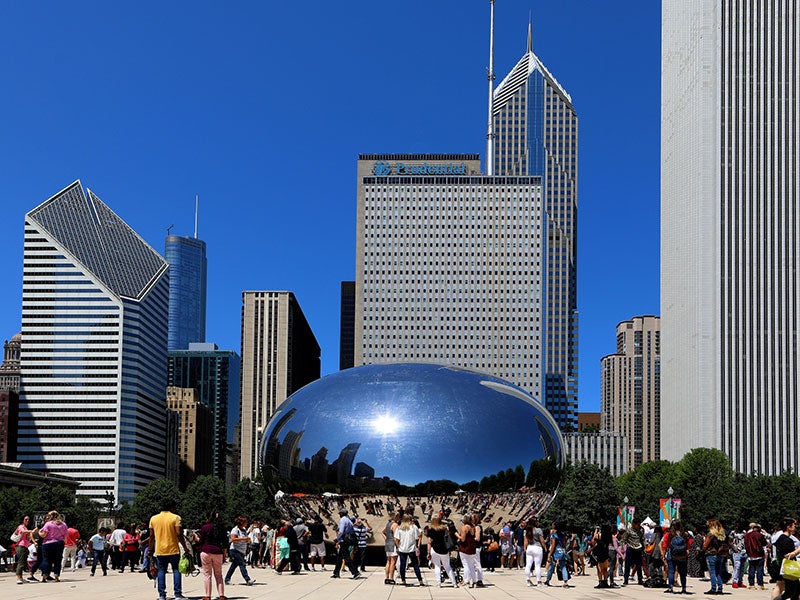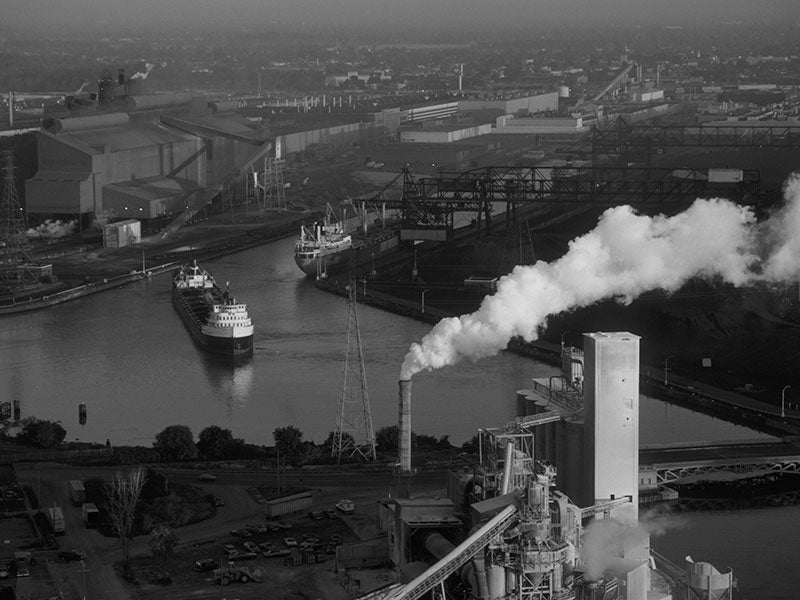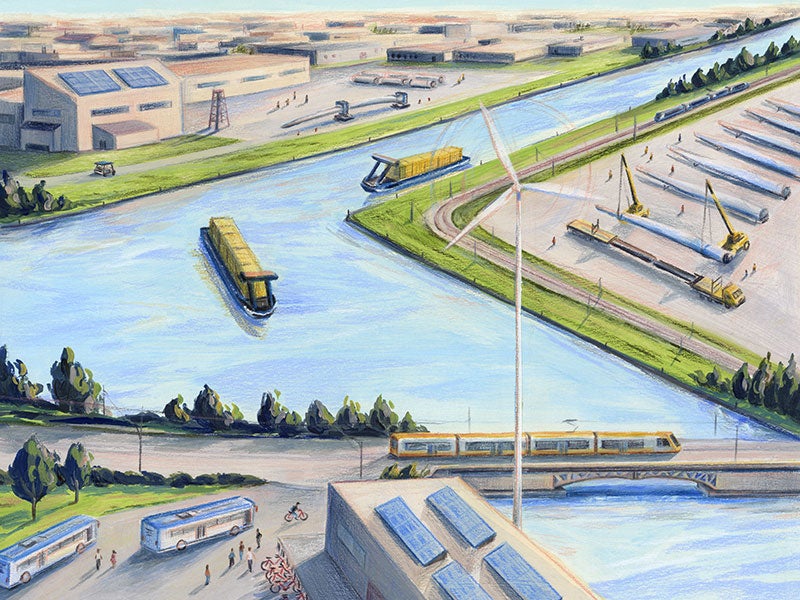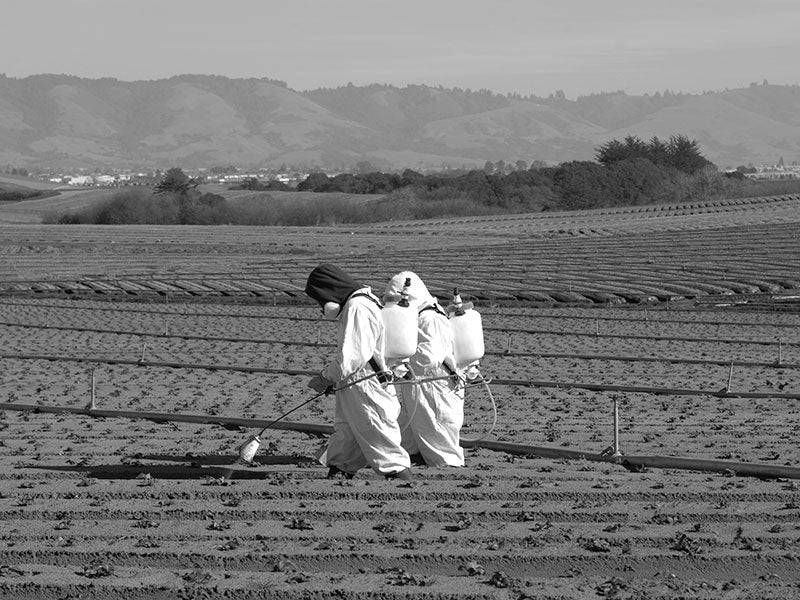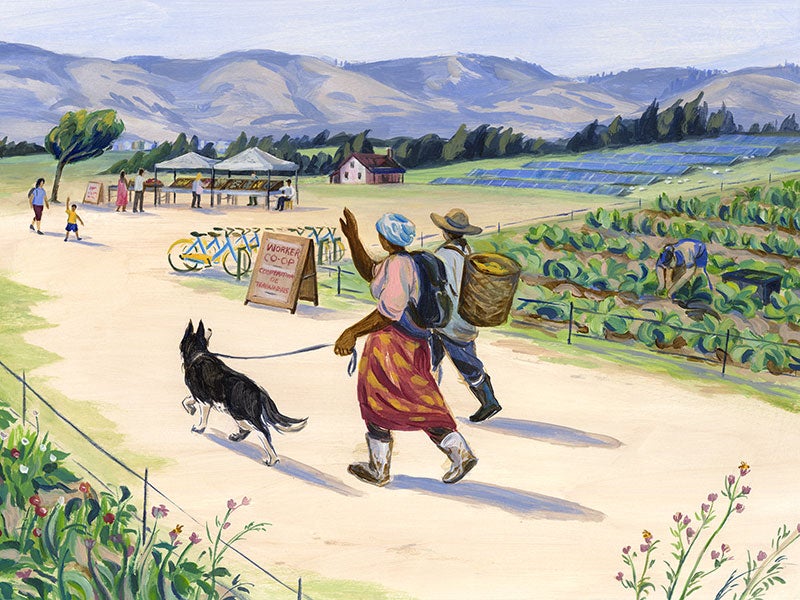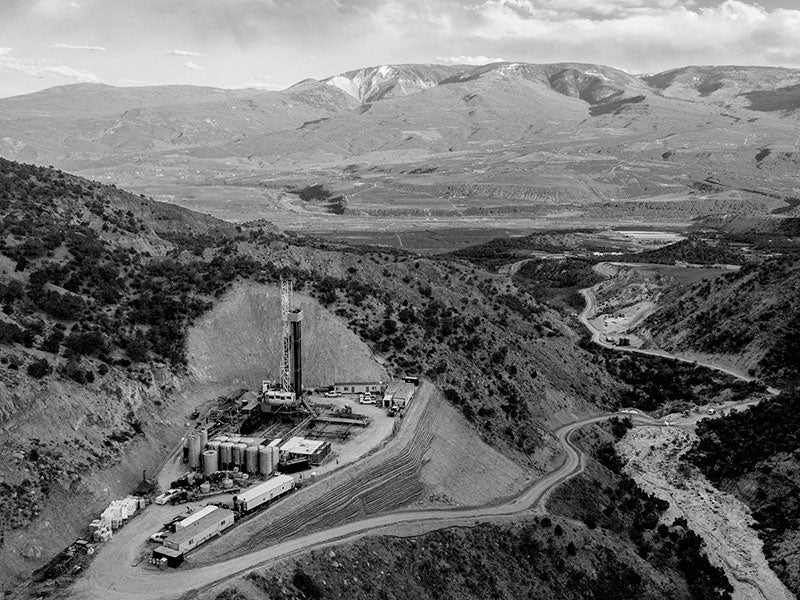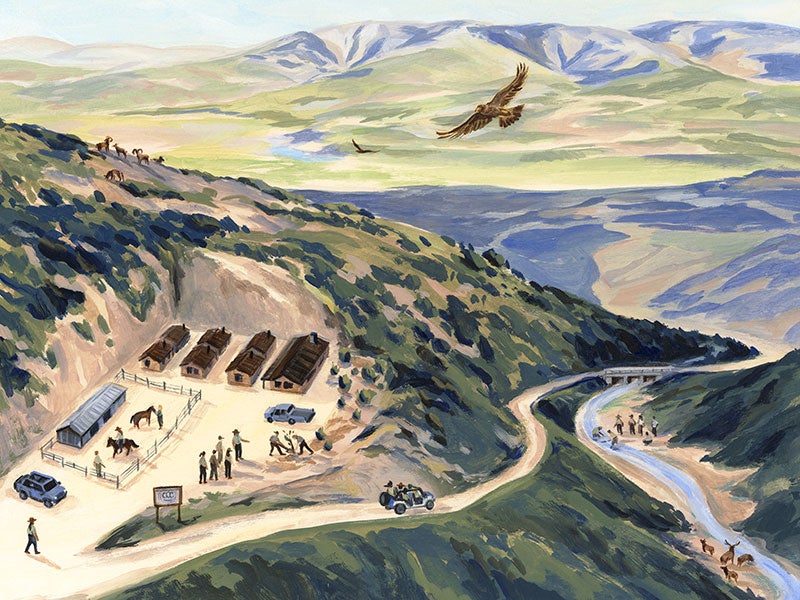December 16, 2020
It’s Time to Imagine — and Demand — the World We Deserve
You can’t create what you can’t see. That’s why we’ve illustrated our own vision for a just world.
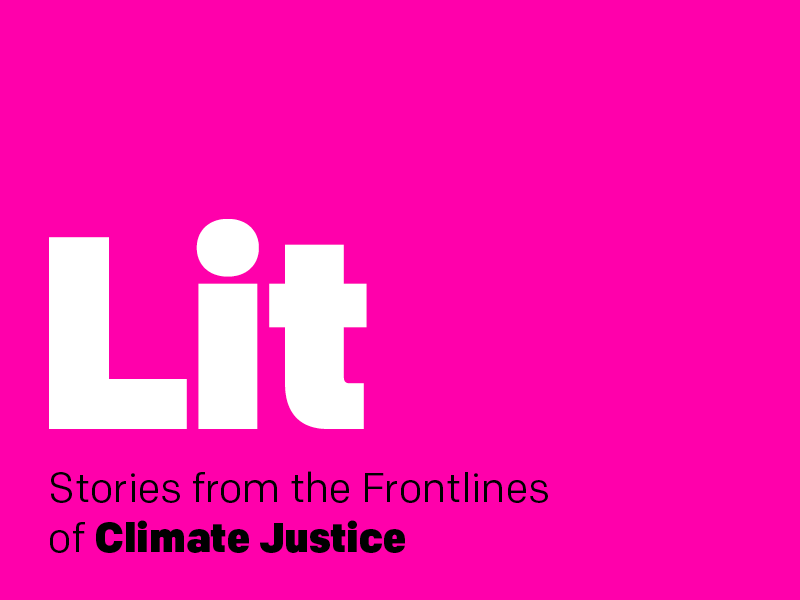

The smoke was so thick they choked when they breathed. Men, women, and children fled the city in droves, desperate to escape the spiraling heat and debris-spitting flames.
The 1871 Chicago fire left 300 people dead, one-in-three residents homeless, and thousands of downtown buildings in ashes. Yet within two years, the city rebuilt, this time using fireproof materials and creating the world’s first skyscrapers, towering above shimmering Lake Michigan.
I think about that time of renewal often as I walk my dog along Chicago’s tree-lined streets and iconic brick bungalows. It wasn’t that long ago. Yet many of today’s leaders lack the same courage to tackle a crisis, whether it’s climate change, COVID-19, or systemic inequality and racism. While the rest of us sift through the ashes left by these intersecting disasters, we’re told it’s too radical to want to build a better world.
I say what’s radical is the refusal to reimagine and rebuild a more just society — when the current one is so clearly broken.
At Earthjustice, we believe a better world is possible because we’ve spent decades fighting for it — and winning. We’re inspired by the tenacity and fearlessness of our clients and partners, as well as by the growing movement of young people and people of color who are deeply concerned about climate change and worsening systemic injustice.
That’s why Earthjustice, alongside an historic coalition of environmental justice and big green groups, created the Equitable & Just National Climate Platform in 2019. In the wake of multiple intersecting crises, this historic policy roadmap provides concrete solutions to rebuild our country in a sustainable and equitable way.
But we know you can’t create what you can’t see. That’s why we’ve commissioned artist Sally Deng to illustrate the world we believe in. We hope these illustrations inspire you to join us in building a just world, together.
From Fossil-Fueled, Polluted Cities to Clean-Powered Communities
Before: Drilling for fossil fuels and burning coal, oil, and gas for decades has created planetary hellscapes and put the world on a fast track to climate catastrophe. At the same time, the fossil fuel industry contaminates our air and water with its waste and pollutes our bodies with toxic chemicals.
After: Clean energy factories retrofitted from the dying fossil fuel industry create jobs, clear the air, and move us toward a zero emissions future. Communities hit first and worst by climate change and systemic injustice get priority access to electric vehicle infrastructure, clean public transit, electrified ports, and renewable energy.
From Toxic Agriculture to Thriving, Climate-Friendly Farms
Before: Industrialized agriculture exacts a steep cost on people and the planet. Farmers and agricultural workers are exposed to toxic chemicals linked to deadly illnesses. Meanwhile, Big Ag land-use practices — like monocropping and heavy chemical use — contribute to soil erosion, deforestation, and climate change.
After: Sustainable agriculture practices like planting cover crops promote carbon sequestration and soil regeneration. Growing a wide variety of plants, including perennial veggies, provides nutritious foods to local communities, promotes biodiversity, and creates jobs.
From Biodiversity Crises to Wildland Conservation and Resiliency
Before: Nature is in crisis. Up to one million animal and plant species are threatened with extinction, and our lands, oceans, and freshwater systems are severely degraded by resource extraction and pollution.
After: Setting aside one-third of our wild lands and oceans by 2030 creates safe havens for endangered species like bears and wolves and carbon sinks for our planet. Upholding treaty rights of indigenous peoples and establishing a new climate conservation corps geared towards young people creates jobs and helps restore land for long term sustainability and resiliency.
About this series
The climate crisis is a product of an unjust system that prioritizes profits above all else. For too long, the fossil fuel industry and its allies have greatly benefitted from this system, often at the expense of our most vulnerable communities.
It’s time to fight for climate solutions that ensure environmental, social, racial, and economic justice for all people. Lit: Stories from the Frontlines of Climate Justice, seeks to highlight these climate justice fights — and inspire others to stand up for their own communities and our shared future.
We know we can’t achieve zero emissions and 100 percent clean energy alone. Join our fight to ensure a more just and equitable world.
